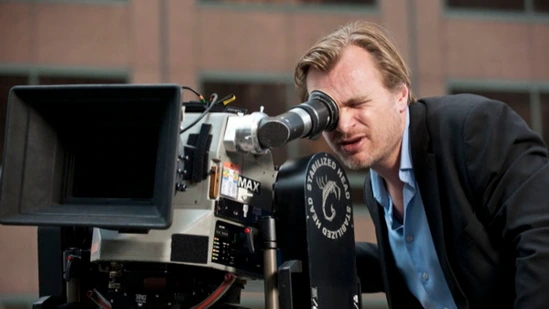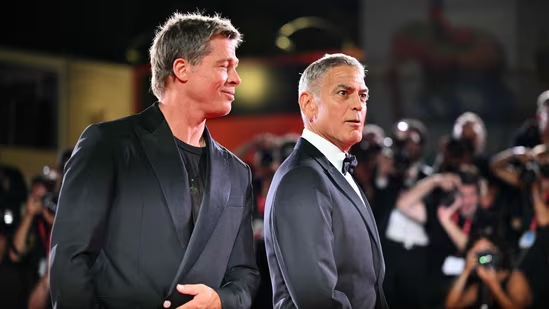Here’s a look at Christopher Nolan’s 11-title filmography as he approaches 54 and his affinity for supporting the idea of the anti-hero.

Aside from the obvious gorgeous red carpet moments that one may encounter—if one is lucky, after the final cut belongs to the audience—directing is an arduous career. Christopher Nolan, the birthday kid, deserves special recognition for making everything seem easy, even receiving praise from everyone for his skill. As the legendary Hollywood bigwig turns 54, let’s look at his all-time favorite cinematic device: the development of the anti-hero. Of course, this works in combination with the intricate yet sophisticated nonlinear storyline, garnering widespread praise.
Oppenheimer
Released in July of last year, Oppenheimer, the eleventh film in Christopher Nolan’s illustrious career, left moviegoers in a state akin to a Barbenheimer fever pandemic. Barbie may have surpassed Nolan’s passion project at the box office by crossing the billion-dollar threshold, but Oppenheimer more than made up for the deficit by winning the whole awards season.
Let us now introduce J Robert Oppenheimer, the (anti)hero of the movie. Oppenheimer is a divisive figure in both American and world history. The most popular story about the physicist who passed away, known as the “father of the atomic bomb,” is that he was the main facilitator of the nuclear end of World War II. The way that Nolan portrays the physicist in Oppenheimer is different; instead of portraying him as a monster, he shows him as a person torn between his sense of personal responsibility and his sense of national duty.
Inception
It is inevitable that the few individuals who aren’t well-versed in Christopher Nolan’s ostentatious, cerebral, commercially marketed cinematic attire have seen the Leonardo DiCaprio-led Inception (2010). After viewing the movie several times, those who have developed their own interpretation of it will realize that Inception is essentially a film without a “hero,” and that Nolan’s direction is exceptional precisely because of this.
Most of the time, Leonardo’s Cobb has the correct heart. However, his greed and selfishness are unusual for someone who is racing against time and through memories. But Nolan creates a story that is so well-crafted and compelling that the viewer isn’t given enough time or attention to fully comprehend all the ways Cobb falls short of becoming a hero. Nolan acknowledges that Cobb, like everyone else, has flaws, and he makes sure that the majority of his audience does too.
Memento
Practically speaking, Memento was Christopher Nolan’s first big-budget feature picture. The 2000 film followed an individual who suffered from anterograde amnesia. Guy Pearce’s character Leonard keeps trying to get revenge for the death of his wife, which deepens the storyline. Although it is simple to feel sympathy for Leonard, the story pieces that keep falling apart will leave you wondering if Leonard really deserves all of the attention or not. The less said about Memento to you if you haven’t seen it yet, the better. This is a movie that you can just press play on.
Following
Even though it was far less in scope than his previous director’s hat project with Oppenheimer, Nolan’s first camera job was every bit as legendary. With his 1998 first feature Following, Nolan made clear his penchant for noir and impending doom. The main character is a failing author who is in dire need of motivation to get started on his quest. He ends up following individuals about the city in an attempt to get insight into their lives and, ideally, spark an idea for a new project. As the narrative progresses, the dogs are forced to walk the thin line between being helpful and invading. About this movie, all we can say is, is there anything greater than one anti-hero? There were two of them.
Obvious mention: Nolan’s Batman trilogy
On the one hand, Nolan is in charge of creating visually stunning stories on the big screen, like Tenet (2020), Interstellar (2014), and Inception (2010). However, he does a fairly good job of blending his style into big-budget commercial hits like Batman Begins (2005), The Dark Knight (2008), and The Dark Knight Rises (2012).
The Batman trilogy by Christopher Nolan may not be as well-regarded by the film elite as some of his other highly regarded works. Bruce Wayne’s transformation from a damaged person to a savior, who repeatedly redeems Gotham City while retaining hints of the former, is one of the several reasons it resonates with the viewer. Another example of Nolan’s passion for the gray, almost black, is his deft portrayal of the Joker, whom Heath Ledger has once again immortalized.
We wish Nolan a very Happy Birthday!




